Entry Category: Law - Starting with P
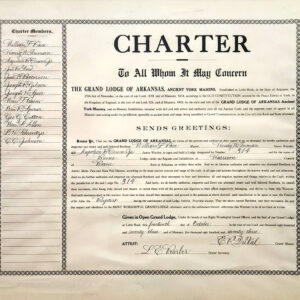 Lodge 314 Charter
Lodge 314 Charter
 William F. Pace
William F. Pace
Paragould Race Riots
Parchmeal, William (Execution of)
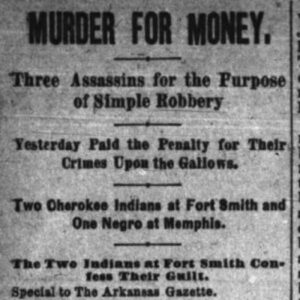 William Parchmeal Execution Article
William Parchmeal Execution Article
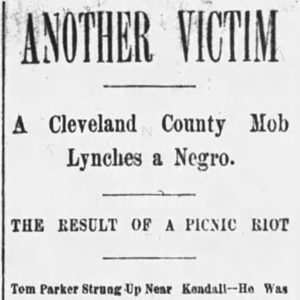 Parker Execution Article
Parker Execution Article
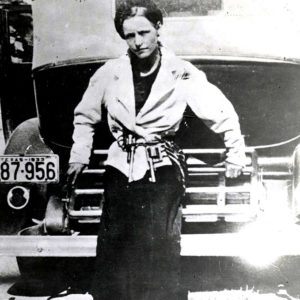 Bonnie Parker
Bonnie Parker
Parker, Isaac Charles
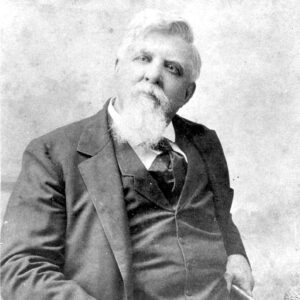 Judge Isaac Parker
Judge Isaac Parker
 Judge Parker Statue
Judge Parker Statue
Parker, Tom (Reported Lynching of)
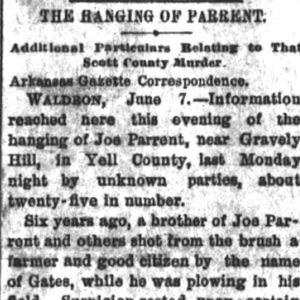 Joe Parrent Lynching Article
Joe Parrent Lynching Article
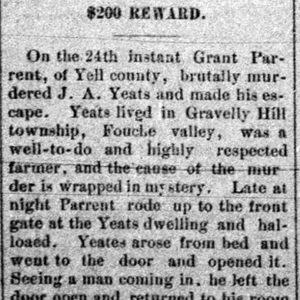 Joe Parrent Reward Article
Joe Parrent Reward Article
Paschal, George W.
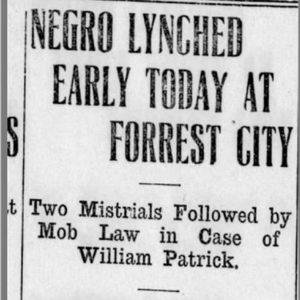 William Patrick Lynching Article
William Patrick Lynching Article
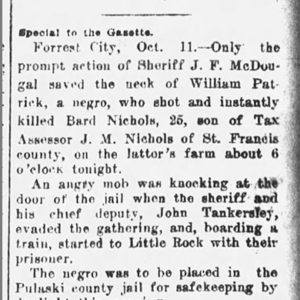 William Patrick Lynching Article
William Patrick Lynching Article
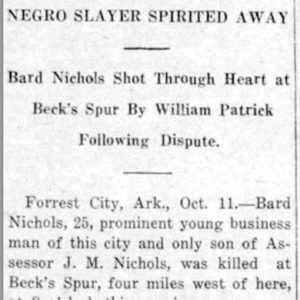 William Patrick Lynching Article
William Patrick Lynching Article
Patrick, William (Lynching of)
Patterson, Franklin (Execution of)
Paul Ruiz and Earl Van Denton (Crime Spree)
Pegues, Chris (Execution of)
Penal Systems
aka: Prisons
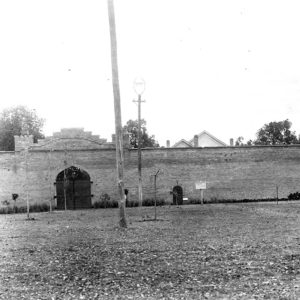 Penitentiary Entrance
Penitentiary Entrance
Peonage
Peters, Albert (Execution of)
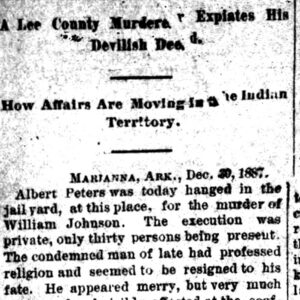 Albert Peters Execution Story
Albert Peters Execution Story
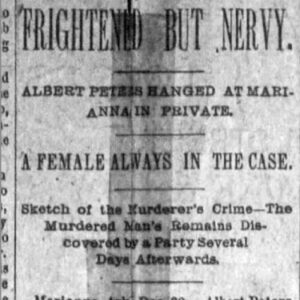 Albert Peters Execution Story
Albert Peters Execution Story
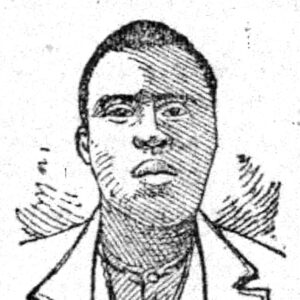 Albert Peters Portrait
Albert Peters Portrait
Pettus, Phillip (Execution of)
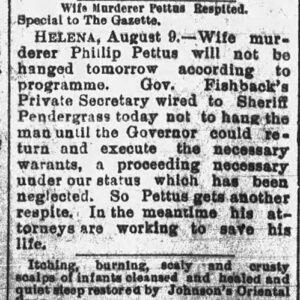 Phillip Pettus Execution Story
Phillip Pettus Execution Story
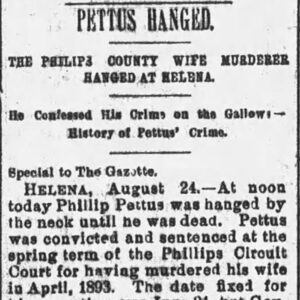 Phillip Pettus Execution Story
Phillip Pettus Execution Story
Pfeifer v. City of Little Rock
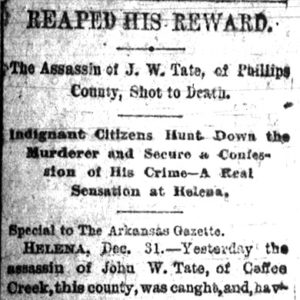 Phillips County Lynching Article
Phillips County Lynching Article
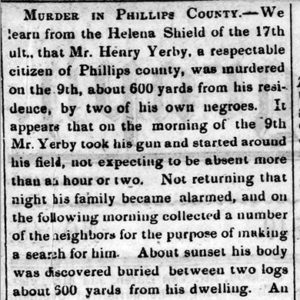 Phillips County Lynching Article
Phillips County Lynching Article
Phillips County Lynching of 1859
Phillips County Lynching of 1889–1890
 Phillips County Penal Farm Cell Block
Phillips County Penal Farm Cell Block
 Phillips County Penal Farm Cells
Phillips County Penal Farm Cells
 Phillips County Penal Farm Water Tower
Phillips County Penal Farm Water Tower
 Phillips County Penal Farm Historic District
Phillips County Penal Farm Historic District
Phillips County Penal Farm Historic District
Phillips, et al. v. Weeks, et al.
Phillips, Henry (Lynching of)
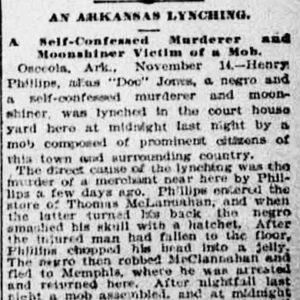 Phillips Lynching Article
Phillips Lynching Article
Piazza, Chris
Pickett, Alexander Corbin (A. C.)
Pike-Roane Duel
aka: Roane-Pike Duel
Pike, Albert
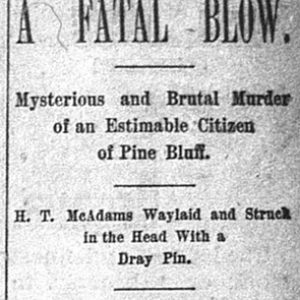 Pine Bluff Lynching Article
Pine Bluff Lynching Article




